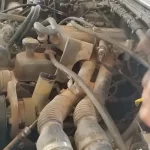An air conditioning (AC) system is crucial in maintaining comfortable indoor temperatures, especially during hot and humid weather.
The AC compressor is a vital system component that compresses and circulates refrigerant to cool the air inside a building or vehicle.
However, like any mechanical component, the AC compressor can develop problems, such as a shaft seal leak, leading to various symptoms.
The shaft seal is a critical part of the AC compressor that prevents the refrigerant from escaping the system. If the shaft seal is damaged or worn, refrigerant can leak out, causing a range of issues.
In this context, the symptoms of an AC compressor shaft seal leak can vary from minor inconveniences, such as reduced cooling efficiency and increased energy bills, to more severe problems, such as system failure and environmental damage.
It is essential to promptly identify and address AC compressor shaft seal leak symptoms to avoid costly repairs and environmental harm.
In this article, we will discuss some of the most common signs of an AC compressor shaft seal leak and explore the causes and consequences of this problem.
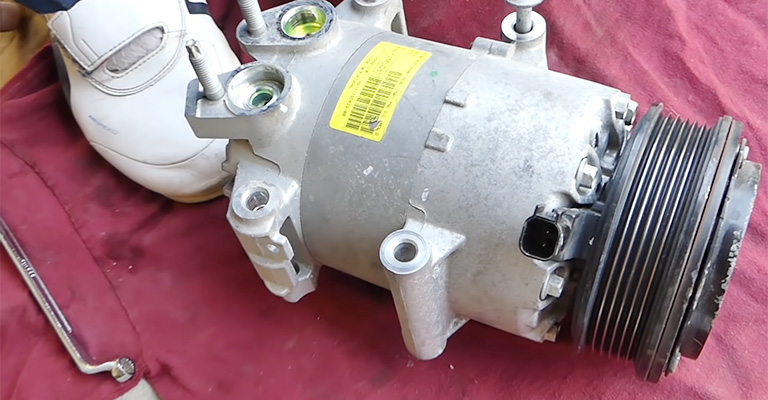
Why Does Your A/C Compressor Leak Oil or Refrigerant?
Many people wish to know what maintenance routine should be followed for the factory air conditioning system in their classic. Whenever our tech guys examine the system, they say, “USE the air conditioning!”
Despite what is commonly believed, air conditioning does not consume refrigerant. Knowing what you know, you’ve been deceived your entire life.
When a system is working properly, the compressor shaft seal is one of the main sources of refrigerant and oil leaks. Automobiles and trucks that are seldom driven and/or are used sporadically suffer from this problem.
Leaks from shaft seals have been documented to occur after as little as two weeks of inactivity. Shaft seal oil leaks and partial refrigerant loss are the most common results.
AC Compressor Shaft Seal Leak Symptoms Explained
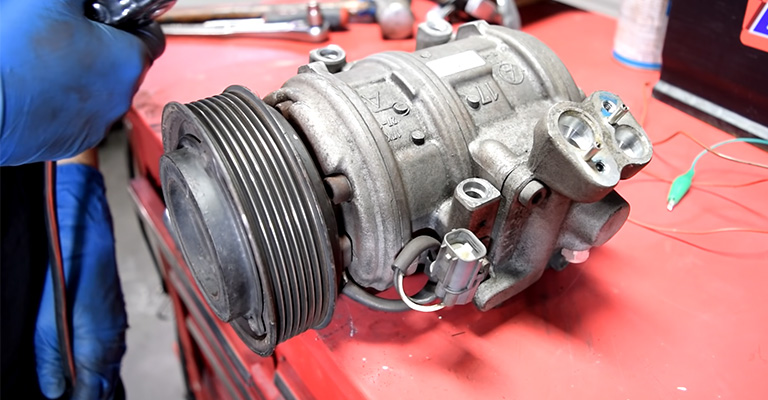
Your car’s compressor shaft seal could leak if your air conditioner isn’t working. If the AC is forced to work with leaky refrigerant, it will be unable to maintain temperature.
In addition, leaking compressor shaft seals may cause hissing or bubbling noises when the AC is on, as well as fluid leaks near the front of the vehicle.
This means that you may have a leaky compressor shaft seal in your car if you notice any of the symptoms listed below:
- A hissing sound coming from the engine compartment
- A decrease in cooling performance
- An increase in fuel consumption
A mechanic should check your car’s compressor shaft seal as soon as possible if you suspect it is leaking. Without proper repair, a leaky seal can cause serious engine damage.
Shaft Seal Leaks can be the Hardest Leak to Detect
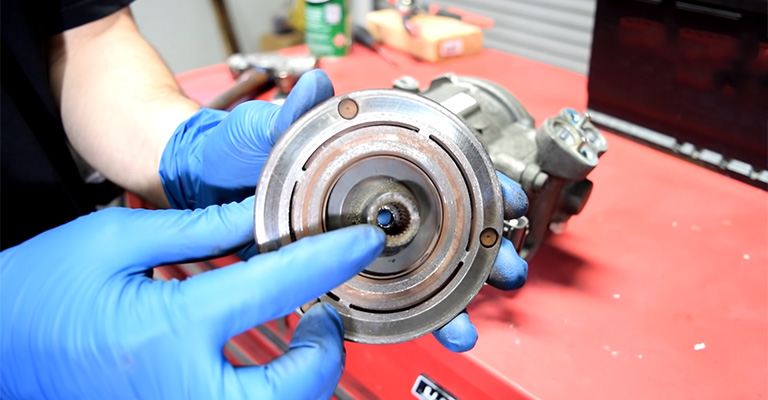
There is a misconception that refrigerant simply disappears after use. If the system is sealed, refrigerant doesn’t escape but rather escapes through holes, cracks, and seals.
A compressor with poor quality or substandard materials can leak at its seals if it has aged badly or worn out parts.
A leak may be easy to find, or it may be difficult to locate. An air leak that occurs in the compressor shaft seal is one of the hardest to find.
Generally, the shaft seal is located behind the clutch hub, in most cases below the dust cover. It is for this reason that it is difficult to see visually.
The shaft seal leak usually occurs over the winter when you have put Freon in it at the beginning of the summer.
It is helpful to pull the clutch hub to find out what is going on, and you can hopefully find that hard-to-find leak by pulling it.
Can An Ac Compressor Seal Leak?
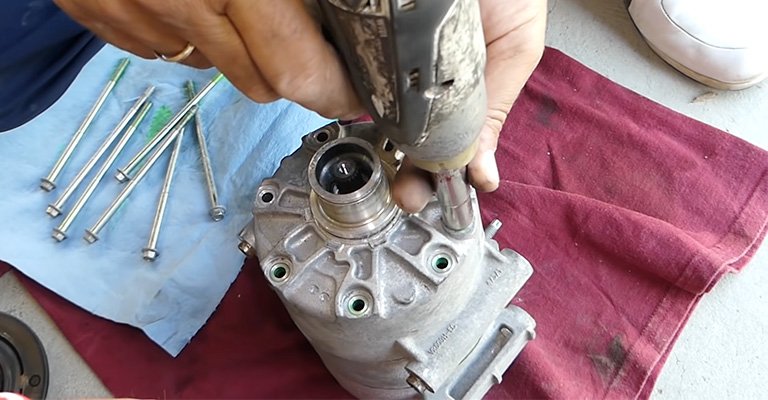
There are different types of sealants, but the most common is a viscous material that helps seal up cracks and gaps.
A compressor seal leak may occur when the sealant material has a gap or crack. Usually, a compressor seal leak is caused by an improper installation.
A seal can leak if the sealant is not installed properly. Wear and age are also commonly responsible for compressor seal leaks.
It is possible for seals to break down or become brittle over time, which may result in leaks.
Chemicals can sometimes cause a compressor seal leak. Chemicals may cause seals to break down and leak when they are exposed to certain chemicals.
Ac Compressor Leaking In Car
You might have a leak in the compressor if your car’s air conditioning isn’t working. When the compressor leaks, refrigerant can escape from the air conditioning system.
It is responsible for circulating refrigerant throughout the entire system. The cause of a compressor leak can be various, including age, wear and tear, or damage.
You should have your compressor inspected by a mechanic as soon as possible if you suspect it might be leaking. Your AC system could end up being permanently damaged if you don’t take the necessary steps.
How Do I Know If My AC Compressor is Leaking?
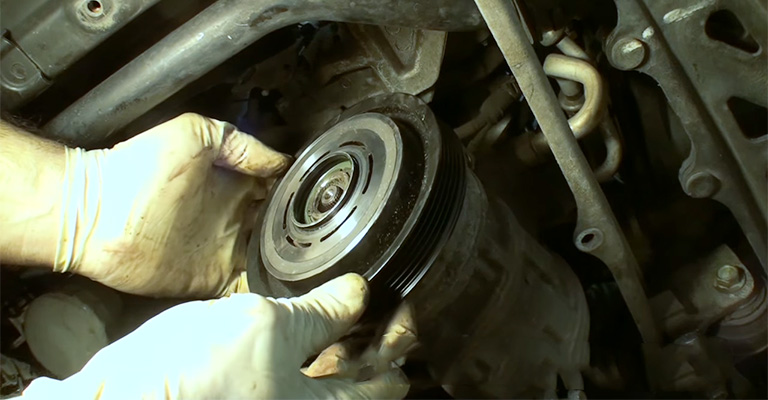
If you have a central air conditioner, a leaky AC compressor can be detected in two ways. Initially, you might want to look for oil around the compressor’s base.
An oily compressor means that the seals are failing, and the compressor needs to be replaced.
Secondly, you can tell if your AC compressor is leaking by listening to a hissing sound. Usually, this sound indicates that there is Freon (the refrigerant) leaking.
Leaking AC compressors need to be repaired as quickly as possible. Having a leaky compressor can lead to a variety of problems, including decreased efficiency, higher bills, and even complete failure.
Where Does a Car Ac Compressor Leak At?
A leak in the AC compressor may be responsible for the lack of air conditioning in your car. It pumps the refrigerant through the system through the AC compressor.
It is also possible that the refrigerant will leak if there is a leak in the compressor.
The hissing sound your AC compressor makes when you turn it on can be an indicator that it is leaking air.
Alternatively, you can look under your vehicle for oil or refrigerant leaks. These two things may indicate that your AC compressor is leaking and needs to be repaired or replaced.
It is best to take your AC compressor to a mechanic or auto shop for diagnostics and repair if you suspect it might be leaking.
Your air conditioner will function properly again once your technicians identify the source of the leak and fix it.
How Do I Change the Shaft Seal on My Ac Compressor?
A faulty shaft seal is to blame for AC compressor oil leaks. Fortunately, you can easily perform this repair yourself. If you need to change the shaft seal on your AC compressor, follow these steps:
- You should first turn off your air conditioner. During compressor maintenance, this will prevent you from electrocuting yourself.
- Once the compressor has been removed, remove the bolts holding it in place. You may need one of these, depending on your socket set or wrench. While removing the compressor from its mount, take care not to drop it.
- Remove the old shaft seal using a screwdriver or other sharp object once the compressor is free. Be careful not to damage the shaft while doing this.
- It is recommended that all debris and dirt be cleaned off the shaft and around the area where the new seal will be installed. Sealing the two surfaces tightly will help prevent leaks.
- Ensure the new seal is correctly installed by applying a thin layer of grease or lubricant around its edges. As a result, it will slide on more easily, and there will be less friction while it is operating.
Final Words
When your car is not used much or stored for most of its life, turn on the air conditioning for approximately 30 seconds.
Maintaining the compressor shaft seal lubricated every couple of weeks can help prevent most shaft seal failures.
Most shaft seals will reseal themselves once you start the air conditioner again, though you might need to top off the refrigerant and/or wipe down the under-hood compartment until the oil is removed.

